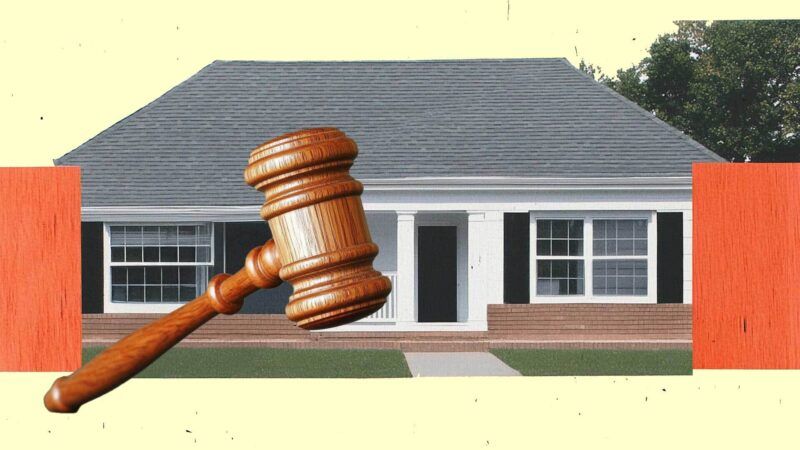He Fell Behind on His Taxes. So the Government Seized His Home, Sold It, and Kept the $258,000 Profit.
But now his case against the government can move forward.

First the government seized Kenneth Michael Sikorsky's home and all of its equity over a tax debt worth far less than what it took. Now a federal court has ruled that Sikorsky has successfully stated a claim for a taking—an early sign that the legal landscape is shifting since the Supreme Court weighed in on these sorts of seizures two years ago.
In 2012, the city of Newburgh, New York, foreclosed on Sikorsky's house after he fell behind on his property taxes. The parties were later able to broker an agreement that allowed him to repurchase the home for the price of his outstanding debt. But he was unable to satisfy those regular installments, prompting the city to cancel the sale.
The government later found another buyer who could pay much more than the value of Sikorsky's debt, which with penalties, interest, and fees stood at $92,786.24. The sale went through in June 2021 for $350,500.
The city then pocketed the profit: $257,713.76.
Sikorsky is far from the first person to experience this nightmare scenario. But his case coincided with a petition that would upend the practice nationwide. Geraldine Tyler argued that home equity theft was unconstitutional after Hennepin County, Minnesota, seized her Minneapolis condo over a modest tax debt, sold it, and kept the profit. This worked its way through the court system until 2023, when the Supreme Court sided with Tyler.
"A taxpayer who loses her $40,000 house to the State to fulfill a $15,000 tax debt has made a far greater contribution to the public fisc than she owed," wrote Chief Justice John Roberts for the unanimous Court. "The taxpayer must render unto Caesar what is Caesar's, but no more." The decision centered around the Takings Clause of the 5th Amendment, which says the government cannot take private property without providing "just compensation." So foreclosing on a property to collect a debt is constitutional, but pocketing the profit is not.
Sikorsky's suit made it to the U.S. District Court for the Southern District of New York shortly after that decision. Sounds like perfect timing, yet the court ruled against him. But now the United States Court of Appeals for the Second Circuit has said that he can, in fact, sue for his equity under the Takings Clause, resuscitating his suit and sending it back to the district court for review.
While the high court ruled the practice unconstitutional, several states—including Arizona, Alabama, New Jersey, and Sikorsky's home of New York—responded by passing labyrinthine debt collection statutes that seek to technically comply with the law while simultaneously making it difficult for property owners to collect their surplus equity. Michigander Chelsea Koetter, for example, lost her house in 2021 over a $3,863.40 tax debt. Manistee County, Michigan, then auctioned it off and kept the $102,636 profit. But the state's supreme court had already ruled the practice illegal in 2020—after which the Legislature approved a debt-collection law that sends owners on an obstacle course should they want to get their leftover equity back. Koetter, according to her complaint, submitted a form 8 days late, which the government said justified its decision to keep her six figures of equity.
In Sikorsky's case, New York's new statute applies only to people whose properties were sold on or after May 25, 2023, so he will get to proceed under the Takings Clause of the U.S. Constitution instead. But future plaintiffs who lose everything after falling on hard times may find it much harder to recover their money.


Show Comments (19)